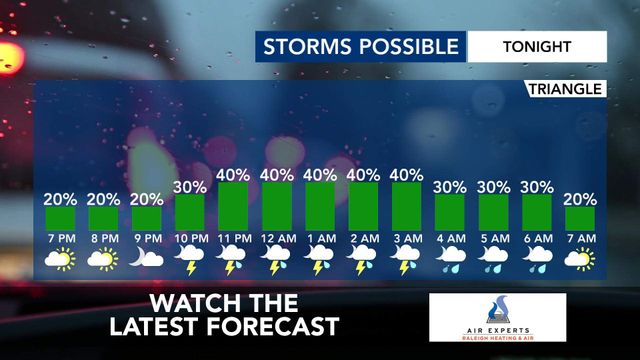Duped Investors Seek Justice in Billboard Fraud Trial
Dozens of members of a Forsyth County church were among people nationwide who lost about $60 million in a billboard scam anxiously await the outcome of the federal fraud trial of a former church member.
Scott Hollenbeck is charged with criminal conspiracy and mail fraud, and his month-long trial is expected to wrap up in Raleigh later this week.
Hollenbeck was a salesman with Mobile Billboards of America, a truck-mounted billboard program that shut down in 2004 amid allegations that it was a Ponzi scheme. But before that happened, he had convinced dozens of families who attended Gospel Light Baptist Church with him to invest in the company.
"He's just a real slick talker, and he just had everybody convinced that he was the answer to everybody's prayers," said Wayne Martin, who, along with his wife, invested two-thirds of their life savings with Hollenbeck.
The clincher for most of the church members was a "surety bond" he presented to them that supposedly guaranteed their investments, as well as 13.5 percent interest.
"When he produced those, we felt, OK, this is a sure thing," Sharlene Martin said. "You really can't trust anyone."
After receiving interest payments for about two years, the Martins and their friends lost their investments.
"You try to live your life right, and then you get took," Wayne Martin said.
Hollenbeck, who now lives in Florida, said he was duped by Mobile Billboards, which put out misleading financial statements.
But Mobile Billboards' former chairman, who already has pleaded guilty in the case, testified that the company wasn't responsible for the "surety bond" Hollenbeck used in his sales pitch.
Hollenbeck told the U.S. Securities and Exchange Commission in 2004 that he put the document together himself but didn’t realize it was misleading.
Investors also have filed several civil suits in an effort to recoup some of their money.
Sharlene Martin said she hopes others learn from her loss.
"You read constantly about the investor that's gotten involved in a scam, and your heart bleeds for those people. Then, all of a sudden, we are one of those people," she said.









